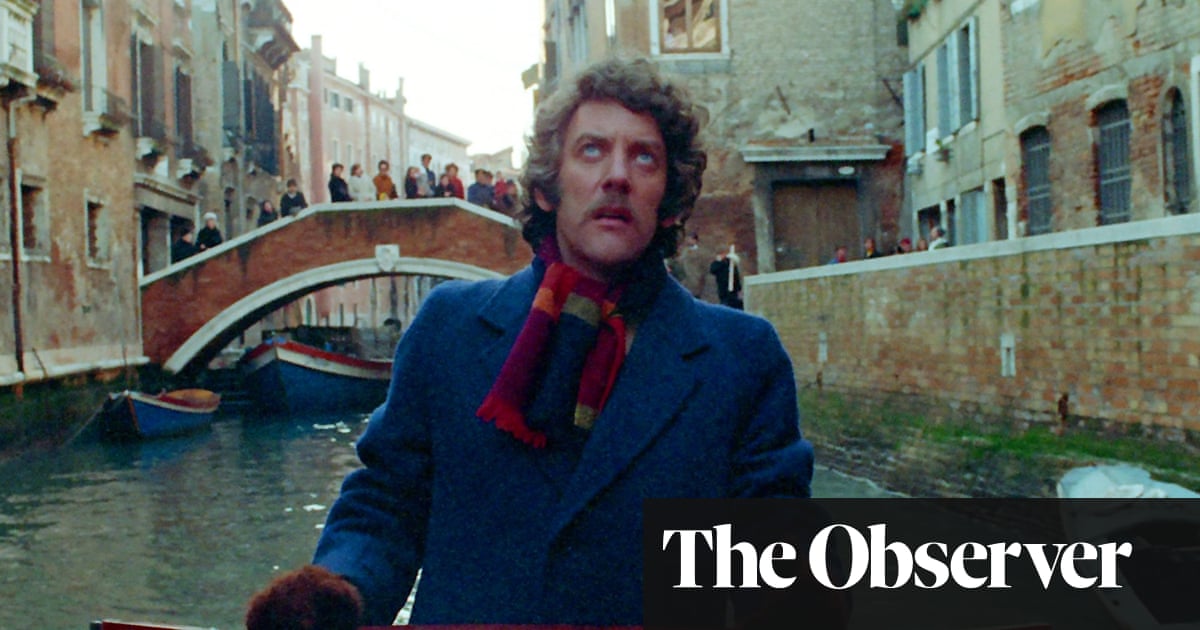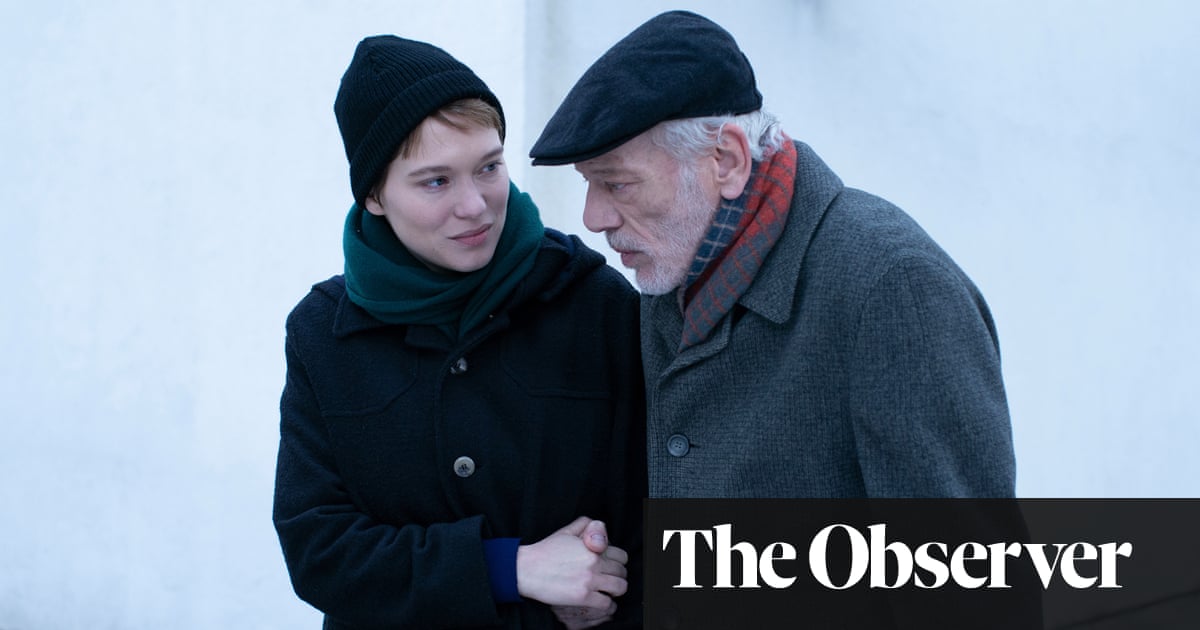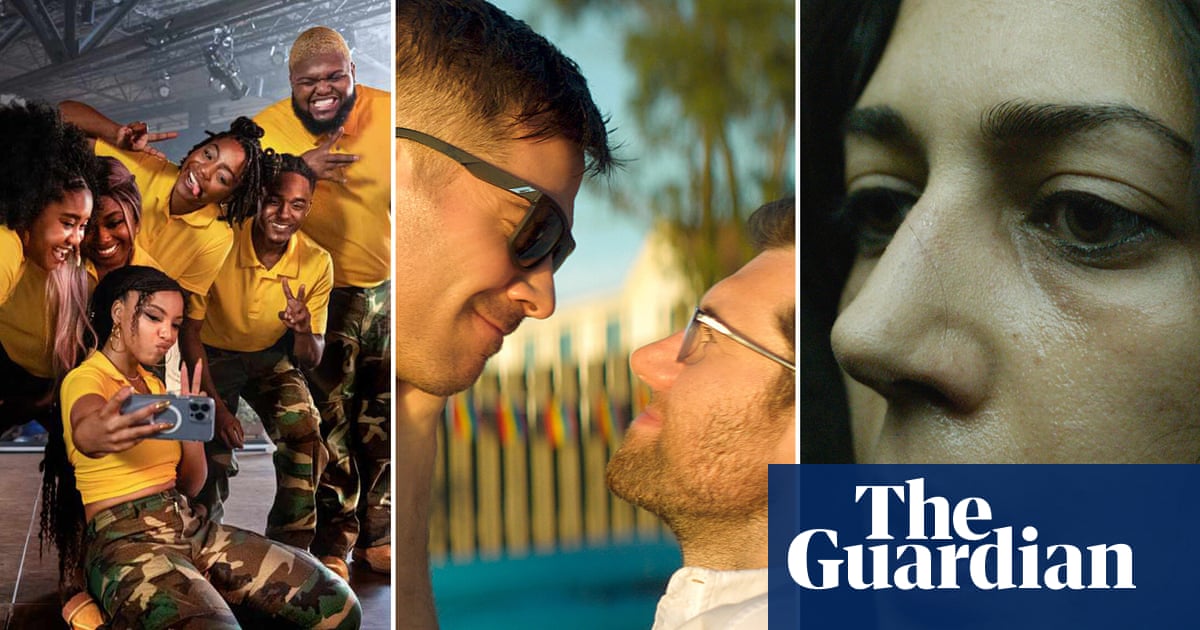
The Paris Olympics are being held at the very time of year when the City of Light is least desirable as a destination, as all those inhabitants who vacate the city in August for their summer getaways well know. Cole Porter might have recommended Paris when it sizzles, but when it sweats? An acquired taste. Sometimes the city is best enjoyed from a distance – via the Olympics coverage if you wish, or the surfeit of films that have made Paris a veritable capital of cinema.
Like any tourist, there’s no shame in starting with the obvious: Parisians may roll their eyes at the airbrushed Montmartre in Jean-Pierre Jeunet’s Amélie (2001), but this gaudy romantic bonbon still has its winsome charms. It’s only a shade less artificial than the Hollywoodised musical visions of the city in the 1950s. Gigi, Vincente Minnelli’s absurdly lavish take on Colette’s slender coming-of-age novella (currently unavailable to stream in the UK), used more location shooting than the same director’s An American in Paris, shot almost entirely on LA backlots, though both are delicious faux-French fancies. Ditto Audrey Hepburn swanning around Paris in Stanley Donen’s Funny Face, though it’s at least more Gallic-chic in spirit.
The French had countered such romanticisation with films such as Marcel Carné’s splendid 1945 Les Enfants du paradis (BFI Player), which captured the decay and the bohemian allure of Paris’s 19th-century theatrical scene with grime under its nails – helped by being shot under wartime conditions. The new-wave film-makers of the 1950s and 60s, however, redesigned Paris in the public imagination. François Truffaut’s The 400 Blows offered an on-the-fly sense of everyday working-class living in the city, while Agnès Varda’s spry character study Cléo from 5 to 7 caught the same era’s Left Bank street life with jagged, jazzy aplomb. Jean-Luc Godard gave the city sex and danger in Breathless, visited the Louvre with youthful exuberance in Bande à part (BFI Player), and made it over as a futuristic sci-fi dystopia in Alphaville, using the city’s existing streetscapes and modernist architecture.
In the 1970s, Bernardo Bertolucci’s Last Tango in Paris (Sky Store) stripped the city of romance but left the eroticism, making it a site of desolate loneliness. A year later, Jacques Rivette restored its adult-playground whimsy in his surrealist maze Céline and Julie Go Boating (BFI Player). Les Amants du Pont-Neuf (1991; Amazon), Leos Carax’s exquisite romance between two homeless dreamers, captured the iridescent splendour and gutter-level grit that coexist even in the city’s prettified centre. Four years later, Matthieu Kassovitz’s groundbreaking, still-jolting La Haine showed viewers the wildly different urban geography of the city’s neglected, immigrant-populated suburbs. In 2019, Ladj Ly’s fevered, pointedly titled Les Misérables offered a still-damning view of Parisian banlieue strife.
Non-French film-makers continue to show Paris at its dreamiest, whether in Baz Luhrmann’s glorious vision of a Las Vegas-ified belle époque in Moulin Rouge!, the fairytale kitsch of Martin Scorsese’s Hugo, or the animated Pixar-postcard views of kids’ favourite Ratatouille. (If you want a cartoon Paris with more grain and texture, seek out Sylvain Chomet’s loopy, sepia-tinged romp Belleville Rendezvous instead.) Richard Linklater’s sun-dappled lovers’ stroll Before Sunset treats the pavements of Paris with a little more respectful authenticity, though is as much a feat of touristic wish-fulfilment as the twinkly fashion fable Mrs Harris Goes to Paris. And while Tom Cruise kicking, jumping and biking his way around the city in Mission: Impossible – Fallout made Paris a rare all-action obstacle course, recent Netflix horror phenomenon Under Paris – Giant sharks! In the Seine! Why not? – proved that the French can take outrageously far-fetched liberties with their capital too.
All titles widely available to rent unless specified.
New to streaming
Mountain Queen: The Summits of Lhakpa Sherpa
(Netflix)
Documentarian Lucy Walker offers a candid, engaging portrait of Lhakpa Sherpa, the first Nepali woman to scale Mount Everest, reclaiming an area of study dominated by male outsiders.
Love Lies Bleeding
Rose Glass’s sensational second feature rejects the tight discipline of her debut, Saint Maud. It’s an 80s-set queer neo-noir fizzing with sex, grisly excess and delicious bad taste.












